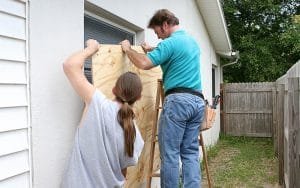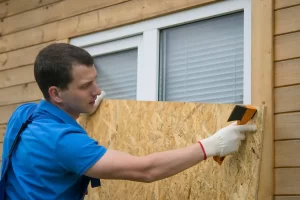
BOARDING UP CARLISLE, Call or Text on: 07342914987
Local Business
No Call Out Fee
(See us on facebook)

BOARDING UP CARLISLE


Boarding Up Carlisle: A Complete Guide to Protecting Your Property
Carlisle, located in the northwest of England, is a city that boasts a rich history, picturesque landscapes, and a mix of urban and rural living. As a city that experiences diverse weather conditions, from cold, rainy winters to occasional storms and high winds, the need for property protection is essential. Whether you’re safeguarding your home against inclement weather, preparing for an extended absence, or securing an unoccupied property, boarding up can be a highly effective way to ensure the safety and integrity of your building. In this guide, we’ll explore why boarding up is necessary, the benefits it offers, and how you can successfully board up your property in Carlisle.

The Importance of Boarding Up in Carlisle
Carlisle’s location, near the Scottish border, exposes it to varying weather conditions, especially in the winter months. The city can experience heavy rainfall, flooding, and strong winds, which can cause significant damage to property. Boarding up your windows and doors is one of the most effective ways to prevent the elements from penetrating your home. By protecting your windows with plywood or other sturdy materials, you can reduce the risk of shattered glass, water entering the building, and the destruction of your interior. The protective barrier created by boarding up helps ensure that your property stays safe during a storm, preventing both environmental damage and unnecessary repair costs.

Beyond the weather, the need to secure vacant properties or protect your home when you are away for an extended period cannot be understated. In urban areas of Carlisle, vacant properties can become targets for vandals or burglars. Boarding up acts as a deterrent, signaling that the property is not easily accessible. Additionally, boarding up helps to protect your property from trespassers, reducing the likelihood of damage or theft. Whether you live in a busy part of town or on the outskirts, boarding up your windows and doors will significantly enhance the security of your property.
How to Board Up Your Property in Carlisle
Boarding up your property in Carlisle is a straightforward process, but it requires proper preparation to ensure that the boards provide adequate protection. The first step is to measure your windows and doors to determine the right size of the boards. The most common material used for boarding up is plywood because of its affordability, strength, and ease of use. For most residential properties, a thickness of 5/8 inches of plywood will provide sufficient strength to withstand high winds and flying debris. Once you’ve gathered your materials, including a saw, screws, or nails, and a hammer or drill, it’s time to begin the installation process.

Start by cutting the plywood to the correct size based on your measurements. Make sure there are no gaps along the edges to ensure that the board is securely fitted over the window or door. Next, place the plywood over the opening and use screws or nails to fasten it tightly to the frame. It is essential to ensure that the plywood is firmly secured to prevent it from being dislodged during extreme weather or vandalism attempts. If you have large or multiple windows, it may be necessary to reinforce the plywood with additional brackets or supports to enhance stability. Finally, ensure that the plywood is fastened evenly to avoid any weak spots that could be exploited by strong winds or intruders.

Benefits of Boarding Up Your Carlisle Property
Boarding up your property in Carlisle provides numerous benefits that go beyond merely protecting it from the weather. One of the most significant advantages is the reduction of potential property damage. Storms can cause windows to shatter, resulting in broken glass and water entering the home. By boarding up, you can prevent these problems before they occur, ensuring your windows remain intact during severe weather. Additionally, the plywood or other materials used for boarding up help to keep your interior dry, reducing the likelihood of water damage to your flooring, furniture, and electrical systems.

Another key benefit of boarding up is enhanced security. In urban areas, vacant homes or buildings are often targeted by criminals. Boarding up windows and doors acts as a deterrent, making it more difficult for burglars or vandals to access the property. It also reduces the risk of break-ins, as boarded-up windows eliminate one of the most common entry points for criminals. For property owners who may be away on vacation, boarding up provides peace of mind, knowing that their home is secure and protected from unwanted intruders.
Boarding up also offers increased privacy. In busy areas of Carlisle, especially those close to main roads or in higher foot traffic zones, it can be difficult to maintain privacy. By boarding up windows, you prevent people from looking inside, safeguarding your personal space. This added layer of privacy is particularly useful if you have valuable or sensitive items within your home, as it reduces the chances of someone spotting them from the outside and being tempted to break in.
Removing the Boards and Post-Boarding Considerations
Once the storm has passed or the period of absence has ended, it’s important to remove the boards from your property. Leaving them in place for too long can result in damage to your windows and surrounding structures. To remove the boards, carefully unscrew or pull out the nails from the plywood, ensuring that you don’t damage the frame or the walls in the process. Be cautious if the boards are stubborn or have become worn during their time in place, as the removal process should be done gently to avoid causing more damage.

When the boards are removed, inspect your windows and doors for any signs of damage. Look for cracks or chips in the glass, as well as any signs of water damage or moisture build-up around the frames. If there are any issues, take immediate steps to repair them to prevent further damage. If you plan to board up your property again in the future, check the condition of the plywood to ensure it hasn’t become weakened or compromised by the elements. In some cases, it may be necessary to replace the plywood with new boards to maintain the integrity of your property’s protection.https://en.wikipedia.org/wiki/Carlisle